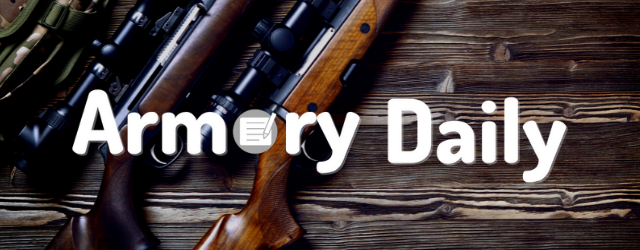
Choosing the Right Firearm: Comparing Assault Rifles, Hunting Rifles, and Personal Defense Weapons
Choosing the Right Firearm: Comparing Assault Rifles, Hunting Rifles, and Personal Defense Weapons
When it comes to owning a firearm, it’s crucial to choose the right one that suits your specific needs and purposes. Whether you are a hunting enthusiast, a home defender, or simply interested in recreational shooting, understanding the differences between assault rifles, hunting rifles, and personal defense weapons is essential. In this comprehensive guide, we will explore the unique characteristics, advantages, and limitations of each type of firearm to help you make an informed decision.
Assault Rifles: Unrivaled Firepower and Versatility
Assault rifles are commonly associated with military usage due to their high capacity magazines and rapid-fire capabilities. Characterized by their select-fire option, which allows the shooter to switch between semi-automatic and fully automatic firing modes, assault rifles offer unparalleled firepower. These firearms typically use intermediate cartridges such as the 5.56x45mm NATO, offering a balance between recoil and stopping power.
Advantages:
1. Firepower: Assault rifles possess a high rate of fire, allowing for quick and continuous shooting, making them suitable for combat situations.
2. Versatility: The select-fire option allows users to toggle between semi-automatic and fully automatic modes, making them adaptable to various scenarios.
3. Ergonomics: Assault rifles are often designed with modern features such as adjustable stocks and customizable rail systems, offering improved handling and comfort.
Limitations:
1. Legal Restrictions: In many countries, including the United States, civilians are typically prohibited from owning fully automatic firearms, limiting their access.
2. Cost: Assault rifles tend to be expensive due to their advanced technology and military-grade construction.
Hunting Rifles: Precision and Accuracy for the Great Outdoors
Designed specifically for hunting game, hunting rifles prioritize accuracy, range, and stopping power. They come in various calibers, typically ranging from .22 caliber to large magnum cartridges. Hunting rifles can be single-shot, bolt-action, lever-action, or semi-automatic, offering different mechanisms to meet different hunting requirements.
Advantages:
1. Accuracy: Hunting rifles are built with heavy barrels and precise triggers, ensuring accurate shots.
2. Range: These firearms are designed to shoot long distances, making them suitable for hunting in open terrains.
3. Ammo Versatility: Hunting rifles can be chambered for a wide range of cartridges, allowing hunters to tailor their ammunition choice based on the game they are pursuing.
Limitations:
1. Single Shot or Limited Capacity: Some hunting rifles are single-shot or have limited capacity, requiring the shooter to reload after each shot.
2. Specialized Purpose: Hunting rifles are tailored for specific game hunting purposes, limiting their usability beyond the hunting field.
Personal Defense Weapons: Compact and Easy to Maneuver
Personal defense weapons (PDWs) are compact firearms that prioritize ease of use, concealability, and maneuverability for self-defense purposes. PDWs are often chambered in pistol calibers and feature semi-automatic or automatic firing options. They are commonly used by law enforcement officers and individuals seeking portable self-defense options.
Advantages:
1. Concealability: PDWs are designed to be lightweight and compact, making them easy to conceal or carry discreetly.
2. Maneuverability: With their compact size, PDWs offer improved maneuverability in confined spaces, such as homes or vehicles.
3. Ease of Use: PDWs are typically designed to be user-friendly, allowing users with minimal training to operate them effectively.
Limitations:
1. Limited Range: PDWs are generally chambered in pistol calibers, which often have shorter effective ranges compared to rifles.
2. Reduced Stopping Power: The smaller size of PDWs and the use of pistol calibers may result in reduced stopping power compared to larger firearms.
FAQs
Q: Can I use an assault rifle for hunting?
A: In most cases, hunting laws prohibit the use of fully automatic firearms for hunting. However, some assault rifle platforms have hunting variants available that comply with legal requirements.
Q: Are there any legal concerns associated with owning an assault rifle?
A: The ownership of assault rifles is highly regulated in many countries. It is essential to understand your local laws and possess the appropriate licenses or permits if you want to own an assault rifle.
Q: Are hunting rifles suitable for self-defense purposes?
A: Hunting rifles can be used for self-defense, but their large size and limited maneuverability may make them less practical in certain situations. Personal defense weapons are generally considered more appropriate for self-defense due to their compactness and ease of use.
Q: Can I use a personal defense weapon for hunting?
A: Personal defense weapons, primarily designed for self-defense, are not typically suitable for hunting purposes. The limited range and reduced stopping power of PDWs make them less effective for hunting game.
In , choosing the right firearm requires an understanding of individual needs and the purpose for which the firearm will be used. Assault rifles offer unrivaled firepower, hunting rifles excel in precision and accuracy, while personal defense weapons provide compactness and ease of use. By considering the advantages, limitations, and legal restrictions associated with each type of firearm, you can confidently make a decision that aligns with your specific requirements. Always prioritize safety and responsible usage when handling firearms.
Published in Firearms

Responses